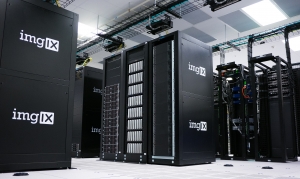Managing Energy Efficiency in Data Centres
Data centres are essential for running machines and keeping them cool, but they consume vast amounts of electricity. According to the International Energy Agency, data storage and transmission are estimated to take up 1% of the world's electricity. Despite the increase in the number of internet users and global internet traffic, this percentage has remained unchanged since 2010. While colocation centres make up the majority of data centres, hyperscale data centres owned by tech companies are in the spotlight.
Data centre construction is now geared towards modularity, with Huawei's FusionPower6000 3.0, which provides power supply and distribution solutions, leading the way. This fully modular solution shortens construction time and improves O&M efficiency, reducing the physical footprint by over 30%. Additionally, power link efficiency reaches 95.5% to supply power in an environmentally-friendly way.
Hyperscale data centres are much larger and more efficient than enterprise data centres, with economies of scale making them more energy-efficient. There are well over seven million data centres worldwide, with the US owning over 2,670. However, it is challenging to estimate how much electricity data centres consume as data centres can range from a cloud hyper scaler of 50MW to a small server room of 50kW. Climate Change Agreement for Data Centres 4th Period estimates that data centres’ energy consumption in the UK was 3.8TWh, or around 1% of the country's total electricity consumption.
In conclusion, data centres’ energy consumption is vast, and there is an increasing demand for energy-efficient solutions. Modular and mobile data centres, including Huawei's FusionPower6000 3.0, offer a promising solution that can provide flexibility and scalability, reduce construction time, improve efficiency and maintenance, and reduce the physical footprint while supplying power in an environmentally-friendly way. As data centres’ energy consumption continues to increase, it is essential to find innovative solutions to power them efficiently and sustainably.
Virgin Media O2 (VMO2) is said to be exploring a potential acquisition of Cityfibre, a challenger broadband provider, in a deal that could be worth up to £3 billion. Talks have already begun between Liberty Global CEO, Mike Fries, and Cityfibre CEO, Greg Mesch. Cityfibre is one of the largest “alt net” broadband providers in the UK, with its full fibre broadband reaching approximately 2 million homes. By 2025, the company aims to have reached 8 million properties.
If the acquisition goes ahead, VMO2 would expand its network, meeting its target of upgrading its entire network to full fibre, with around 50% of Cityfibre’s network overlapping with its own. The purchase would allow VMO2 to compete more effectively with BT’s Openreach network. However, the acquisition is likely to be subject to scrutiny from competition regulators due to the significant overlap between the two companies’ networks.
Goldman Sachs-backed Cityfibre could command a price tag of over £3 billion. The company raised £4.9 billion in debt financing last year and has a strong market position, having provided services to telecoms providers such as Vodafone and TalkTalk. Despite this, the company announced plans last month to cut up to 400 jobs, equivalent to a fifth of its workforce, to reduce costs. Cityfibre also incurred losses of almost £50 million in 2021.
Industry experts have questioned VMO2’s negotiating position. James Barford, Head of Telecoms Research at Enders Analysis, believes Cityfibre’s scale makes it attractive to VMO2 but warned of the regulatory hurdles that may arise from such an acquisition. On the other hand, John Karidis, a telecoms analyst at Numis, believes that VMO2 may be negotiating from a position of weakness due to the fact that much of its existing broadband network is cable, not full fibre, and Liberty Global's nearly 25% decline in share price over the past year.
Cityfibre and other alternative network (alt net) providers have expressed concerns about planned wholesale price cuts that would undercut them by locking customers into longer deals, raising fears of their viability as a business model. In response, Ofcom has extended its investigation into the price plan, known as Equinox II, following a backlash over comments made by BT CEO Philip Jansen.
Neither VMO2 nor Cityfibre have commented on the potential acquisition.
Green data centre used to heat swimming pool
A startup called Deep Green has found a unique use for the heat generated by its washing-machine-sized data centres: heating a public swimming pool in Devon. The computers inside the data centre are surrounded by oil that captures the heat, which is then used to warm the pool water via a heat exchanger. This method has been successful in heating the pool to around 30C for 60% of the time, saving the Exmouth Leisure Centre thousands of pounds. The data centre is provided to the council-run centre free of charge, and Deep Green has even agreed to refund the leisure centre's electricity costs for running the "digital boiler." Seven other England-based pools have signed up for the scheme. Despite concerns about the energy usage of data centres, Deep Green's innovative approach proves that these centres can be used for good, as they generate a lot of heat, which can be harnessed for other purposes.





